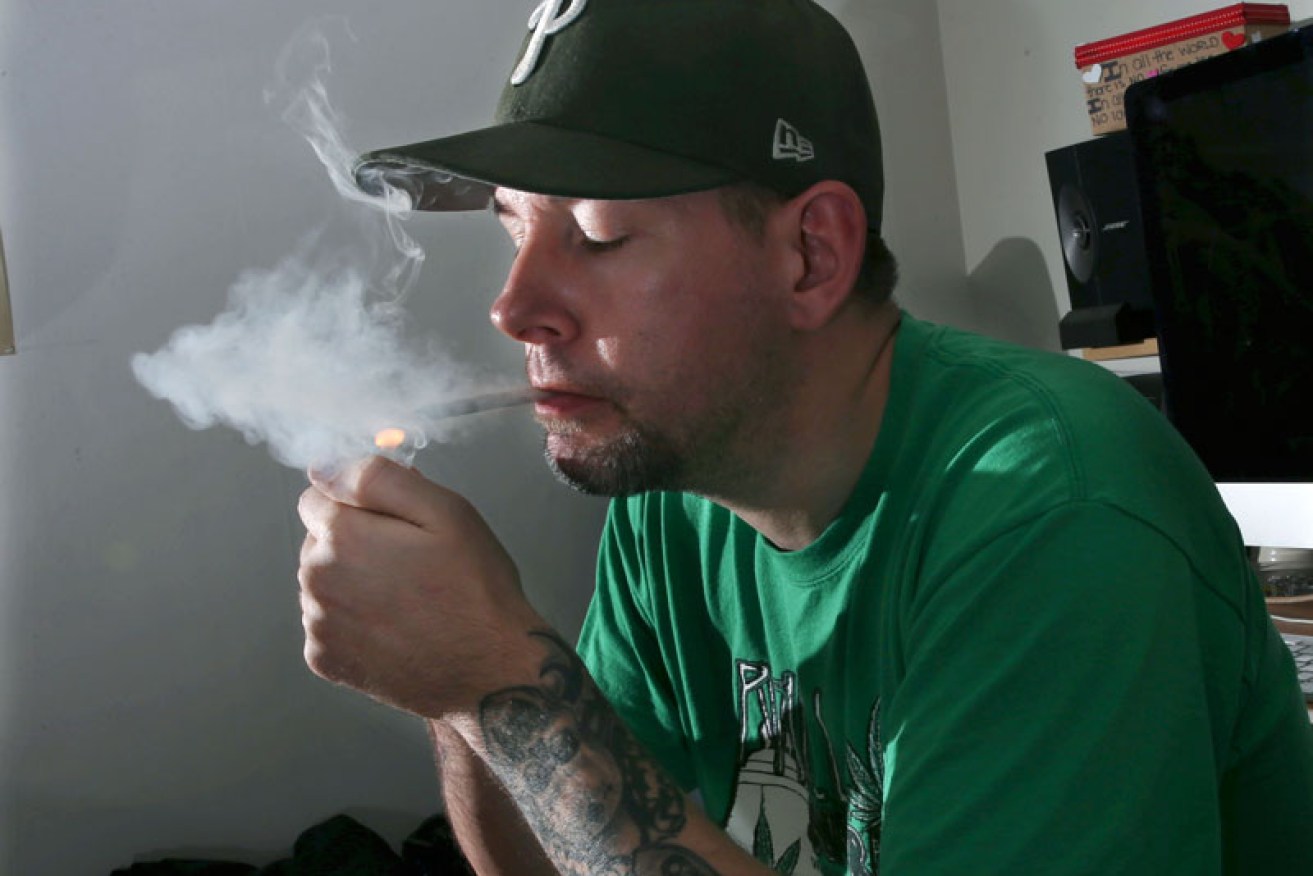Insomnia is a bit like marijuana, reveals study

AP
A study examining the link between sleep and obesity may give Australians struggling with their weight an easier way to get in shape.
Its findings suggested that insomnia acts on the brain in a similar way to marijuana – by giving us the ‘munchies’.
Participants suffering sleep deprivation were found to have higher levels of the chemical endocannabinoid 2-AG circulating in their blood, according to the results published in February in the Sleep journal.
• It’s not insomnia if you stay up voluntarily
• The only popular diet supplement worth buying
• Benzodiazepines: how to avoid addiction
• Polluted air could be making us fat
These volunteers were reportedly more likely to eat biscuits, lollies and chips, despite having eaten a large meal (90 per cent of their daily caloric needs) just two hours before.
“We found that sleep restriction boosts a signal that may increase the hedonic aspect of food intake, the pleasure and satisfaction gained from eating,” lead author Dr Erin Hanlon of Chicago University said in a statement.
“Sleep restriction seems to augment the endocannabinoid system, the same system targeted by the active ingredient of marijuana, to enhance the desire for food intake.”
The study examined the same group of 14 young adults, half male and half female, who were fed identical meals. First, they were allowed to sleep an average of 7.5 hours a night. Second, only four hours 11 minutes.
When the group’s sleep was restricted, they were more likely to eat junk food, the study found.
How sleep causes obesity
The idea that sleep may mimic marijuana use is new, but the link between obesity and sleep is not.
An Australian sleep expert told The New Daily that the link is well established, and that this study may provide yet another reason to try to sleep better.

Sleep restriction, like marijuana, appears to increase cravings, according to a recent study. Photo: AP
“Over the past 10 years, the research on sleep and obesity has been quite prolific,” CQ University head of paediatric sleep research Associate Professor Sarah Blunden said.
The expert named three known mechanisms.
Firstly, sleeplessness seems to disrupt the body’s ability to metabolise glucose and insulin. Secondly, it may disrupt the normal function of the two appetite hormones, leptin and ghrelin. Finally, those suffering insomnia may be less likely to exercise and eat healthily.
Assoc Prof Blunden said previous research had also observed the same increase in junk food cravings as seen in the Chicago University study.
“Certainly the brain chemistry is at risk when we don’t sleep enough. In adults, the recent literature suggests under six and over nine hours puts you at extra risk of being obese, which is interesting because it suggests there’s a very specific window of good sleep.”
An easier way to get in shape
Assoc Prof Blunden said that, despite “prolific” research, the importance of sleep to obesity prevention and general health is often ignored by the medical profession.
“Sleep has not had the publicity that diet has in terms of how it can regulate everything, particularly weight,” she said.
“It is the foundation of all health, physical and mental health. And they are interrelated to every other aspect, so glucose metabolism, insulin and ghrelin, appetite regulation and even cravings. It all links in together.”
The average Australian would do well to note her advice, as the professor said that getting more sleep could be an easier way to prevent or combat obesity.
“The thing about sleep is that it is very easily modifiable, and perhaps even more easily modifiable than diet,” she said.









